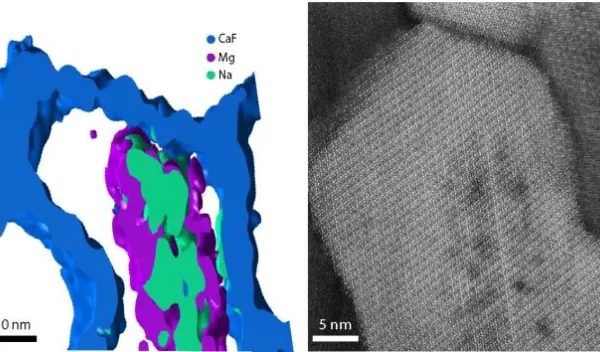
Materials scientists drill down to vulnerabilities in human tooth decay
Researchers at Northwestern University have cracked one of the secrets of tooth decay. In a new study of human enamel, the materials scientists are the first to identify a small number of impurities that may contribute to the enamel's strength but also make the material more soluble. They are also the first to determine the spatial distribution of the impurities with atomic-scale resolution.
Dental caries -- better known as tooth decay -- is the breakdown of teeth due to bacteria ("caries" is Latin for "rottenness"). It is one of the most common chronic diseases and a major public health problem, especially as the average life expectancy of humans increases.
The new discovery about the building blocks of enamel -- with detail down to the nanoscale -- could lead to a better understanding of human tooth decay as well as genetic conditions that affect enamel formation, which can lead to compromised or completely absent enamel.
Enamel, the human tooth's protective outer layer, covers the entire crown. Its hardness comes from its high mineral content.
"Enamel has evolved to be hard and wear-resistant enough to withstand the forces associated with chewing for decades," said Derk Joester, who led the research. "However, enamel has very limited potential to regenerate. Our research helps us understand how enamel may form, which should aid in the development of new interventions and materials to prevent and treat caries. The knowledge also might help prevent or ameliorate the suffering of patients with congenital enamel defects."
The National Science Foundation-funded study was published in the journal Nature.
"NSF is keen to support fundamental materials research discoveries like this one," said Randy Duran, a program director in NSF's Division of Materials Research. "It addresses long-standing questions in the area of biomineralization."


